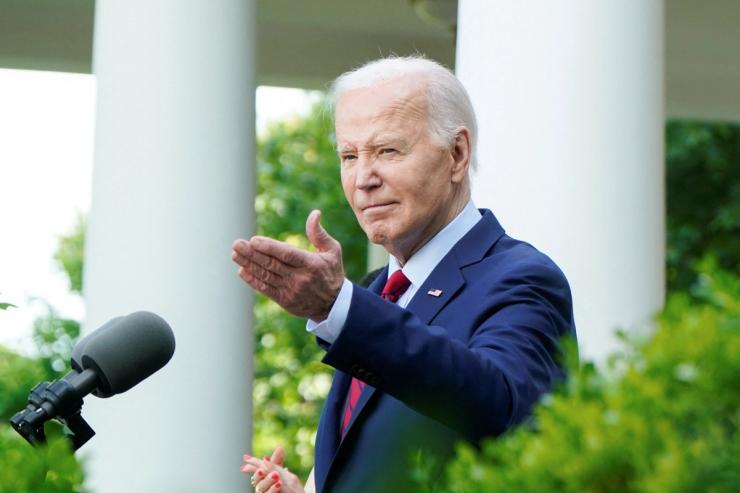The News
On Wednesday, Donald Trump and Joe Biden agreed to two televised debates on June 27 on CNN and on September 10 on ABC News. The news comes after both men said they are willing to participate in two presidential debates before the election, one in June and one in September.
The flurry of agreements started after Biden issued an open invitation to Trump in a short video on Tuesday posted to X.
“Donald Trump lost two debates to me in 2020, and since then he hasn’t shown up for a debate,” Biden said in the video. “Now he is acting like he wants to debate me again. Well, make my day, pal. I’ll even do it twice.”
Trump quickly responded on Truth Social, saying he’s “ready and willing” to debate Biden — but he added he would “strongly recommend more than two debates.”
According to a person familiar with the terms of the CNN offer, the debate will be held in the network’s Atlanta studio without an audience, although Trump had said he would like “a very large venue.” The debate setting was later confirmed by CNN. The moderators will be anchors Jake Tapper and Dana Bash.
Trump also said he’d accepted a third debate hosted by Fox News on October 2, hosted by Bret Baier and Martha MacCallum. But the Biden campaign appeared to nix that idea, issuing a statement noting that Biden had “made his terms clear for two one-on-one debates” and accusing Trump of having “a long history of playing games with debates.”
The agreements come after months of Trump challenging Biden to debate — even after Trump himself declined to take part in any Republican primary debates.
Know More
At Trump’s recent rallies, the campaign has given print-outs to reporters of a Trump Truth Social post urging Biden to debate, and on stage at Trump’s Wisconsin and New Jersey rallies Trump placed an empty lectern to represent a placeholder for Biden.
Notably, the Biden campaign also said they would ditch the traditional debates organized by the bipartisan Commission on Presidential Debates. Their debates were scheduled for September 16, October 1, and October 9.
In a letter to the commission, Biden campaign chair Jen O’Malley Dillon said one reason was because the scheduled debates were set to occur after voting had already begun — a key complaint from the Trump campaign, too.
“The Commission’s failure, yet again, to schedule debates that will be meaningful to all voters – not just those who cast their ballots late in the fall or on Election Day – underscores the serious limitations of its outdated approach,” the letter stated.
O’Malley Dillon also argued that the debates “are structured like an entertainment spectacle” and the commission “has consistently demonstrated an inability to enforce their own rules.”
The Biden campaign has also proposed a vice presidential debate in late July, and proposed various rules, including having the debate be one-on-one (so no third-party candidates like Robert F. Kennedy Jr.) and no studio audience.
“As was the case with the original televised debates in 1960, a television studio with just the candidates and moderators is a better, more cost-efficient way to proceed: focused solely on the interests of voters,” the Biden team’s letter stated.
But, in his Truth Social post, Trump wrote that “for excitement purposes” he’d propose “a very large venue.”
The View From The Commission on Presidential Debates
“The American public deserves substantive debates from the leading candidates for president and vice president,” the CPD said in a statement. “The nonpartisan Commission on Presidential Debates (CPD) was established in 1987 specifically to ensure that such debates reliably take place and reach the widest television, radio and streaming audience. Our 2024 sites, all locations of higher learning, are prepared to host debates on dates chosen to accommodate early voters. We will continue to be ready to execute this plan.”
Notable
In an unusual move, a group of major media organizations wrote an open letter in April urging the presidential candidates to debate.


